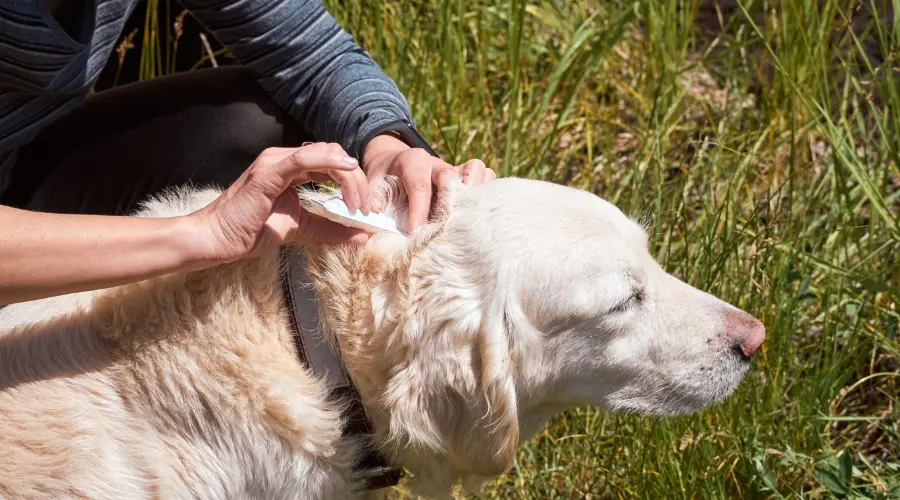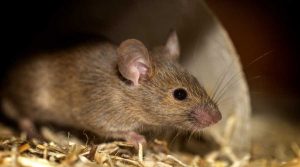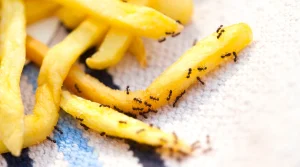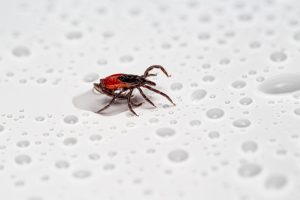Flea and tick season is a time of heightened concern for pet owners and homeowners alike. These tiny parasites pose serious health risks, from discomfort to disease transmission. Taking proactive steps can safeguard your home, your pets, and your peace of mind.
Key Takeaways:
- Fleas and ticks are bugs that are parasitic and may harm both pets and humans.
- These pests thrive in warm, humid climates and are most active from spring to fall.
- Preventative measures like pet treatments, insect repellents, and professional pest control are vital.
- Regular checks on pets and outdoor areas can help stop infestations before they start.
Understanding Fleas and Ticks
The Habits of Fleas and Ticks
Fleas and ticks thrive in grassy, wooded areas and latch onto hosts, such as pets or wildlife, for survival.
- Fleas: Lay eggs on their host, leading to rapid infestations.
- Complete their life cycle in as little as two weeks.
- They can invade homes and are difficult to eradicate without professional help.
- Ticks: Prefer wooded or bushy environments.
- Enter homes via pets or clothing.
- It is known to transmit diseases like Lyme disease and Rocky Mountain spotted fever.
Both pests can irritate and pose serious health risks if left untreated.
When Is Flea and Tick Season?
Flea and tick activity largely depends on weather conditions:
- Fleas and ticks enter diapause (a state similar to hibernation) during winter but can remain active year-round in warmer climates.
- Southeastern states, including Virginia, Maryland, and Tennessee, experience flea and tick activity from March to December, while northern regions have a shorter season.
Risks of Flea and Tick Bites
Health Concerns:
- Ticks: Known vectors for diseases like Lyme disease and alpha-gal syndrome.
- Fleas: Can transmit parasites and cause allergic reactions.
Symptoms of Bites:
- Redness, swelling, and itching.
- Secondary infections if bites are scratched or untreated.
Taking immediate action after noticing a bite can prevent further complications.
Preventing Fleas and Ticks
Protecting Your Pets
- Topical treatments (e.g., flea and tick drops).
- Oral medications prescribed by veterinarians.
- Collars are made to keep ticks and fleas away.
- Regular grooming and checking your pets for obvious bugs or increased scratching, which are indicators of parasites.
Safeguarding Your Home
- Vacuum carpets, furniture, and pet bedding frequently.
- Wash pet bedding in hot water weekly.
- Keep lawns trimmed and remove leaf litter or debris where pests might hide.
Personal Protection Outdoors
- Wear long sleeves, pants, and closed-toe shoes when hiking or walking in wooded areas.
- Use EPA-approved insect repellents containing DEET or permethrin.
What to Do in Case of an Infestation
Signs of an Infestation
- For fleas: Visible flea droppings or eggs in pet fur, bites on ankles, or seeing fleas jump.
- For ticks: Find attached ticks on pets or yourself.
Taking Action
- Consult a veterinarian for pet-specific treatments.
- Contact professional pest control services to assess and treat your home.
- Close any holes or cracks in the foundation of your house to prevent pests from entering.
Frequently Asked Questions (FAQ)
When does flea and tick season peak?
Flea and tick season peaks during spring and summer, when it’s warm outside and humid high. However, in milder climates, activity can continue year-round.
Can fleas and ticks harm humans?
Yes. While fleas rarely use humans as hosts, their bites can cause allergic reactions. However, ticks may spread illnesses like Lyme disease to humans.
How can I tell if my pet has fleas or ticks?
- Look for excessive scratching, visible parasites, or flea dirt (tiny black specks) in your pet’s fur.
- For ticks, feel for small, hard lumps on your pet’s skin, particularly around the ears, neck, and belly.
Are natural remedies effective against fleas and ticks?
While natural options like essential oils may deter pests, they are not as effective as veterinary-approved treatments and could pose risks to your pets.
How often should I treat my pet for fleas and ticks?
Follow your veterinarian’s guidance, but most treatments are applied monthly. Some oral medications may last longer.
Can I prevent fleas and ticks without professional help?
You can reduce the risk with preventative measures like pet treatments and yard maintenance. However, professional pest control may be necessary for severe infestations.
What conditions are linked to ticks and fleas?
- Fleas: Tapeworms, flea allergy dermatitis.
- Ticks: Lyme disease, Rocky Mountain spotted fever, and anaplasmosis.
How do I remove a tick safely?
Grab the tick near the skin using fine-tipped tweezers. Drag upward with steady pressure. Clean the bite area with soap and water afterward.
Professional Help Is Key
Despite your best efforts, fleas and ticks can sometimes become unmanageable. In such cases, enlisting the help of experts like Poway Pest Control can save you time and ensure effective removal.
Contact Poway Pest Control today for a free initial assessment and reclaim your home from pests.
By being proactive and knowledgeable, you may protect your home, your pets, and your family from the dangers of flea and tick infestations.







